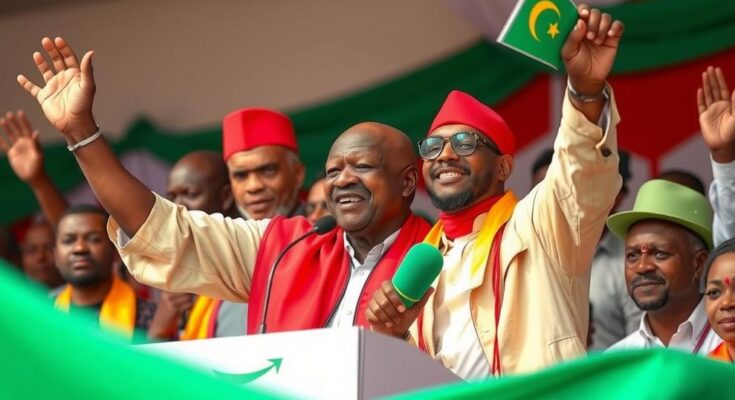Chad’s ruling Patriotic Salvation Movement has won 124 out of 188 National Assembly seats in a recently held parliamentary election largely boycotted by opposition parties. While the governing party claims this marks progress towards democracy, critical voices argue the election lacked legitimacy, reflecting broader societal skepticism. Additionally, Chad faces significant security challenges amid an evolving geopolitical landscape.
Chad’s ruling party, the Patriotic Salvation Movement, has claimed a significant majority of seats in the recent parliamentary election, securing 124 out of 188 positions in the National Assembly. This announcement was made by Ahmed Bartchiret, the head of the electoral commission. The election was largely boycotted by opposition parties, which raised concerns about its legitimacy, citing a participation rate of only 51.56 percent as a signal of public skepticism regarding the electoral process.
President Mahamat Idriss Deby, who assumed power following the death of his father, longtime leader Idriss Deby Itno, has positioned this election as the final step in Chad’s transition towards democracy. This vote, alongside municipal and regional elections, marked the first of its kind in over a decade. However, opposition parties, including the pivotal Transformers party, criticized the electoral process as a “charade.” They expressed fears that it would mirror the disputed presidential elections from the previous year, which were deemed lacking in credibility by election monitors.
Contextually, Chad faces a myriad of security challenges, including violent unrest in the Lake Chad region attributed to the Boko Haram group and the cessation of military collaboration with France. This move aligns with broader regional trends where countries like Mali and Niger have also expelled French troops, further shifting alliances towards Russia amid increasing military coups within the Sahel region. Recently, Chadian security forces thwarted an alleged attempt to destabilize the current government, adding to the ongoing political tensions in the country.
The article discusses the aftermath of Chad’s recent parliamentary elections, which were overshadowed by widespread opposition boycotts and claims of illegitimacy. The elections were framed by the ruling Patriotic Salvation Movement as a critical move towards democratic governance following a prolonged military rule. This context is accentuated by ongoing security issues and shifts in international military relationships, specifically with France and rising ties with Russia, amid a backdrop of regional instability.
In conclusion, the parliamentary elections in Chad have been characterized by considerable controversy, with the ruling party claiming a dominant majority amidst significant opposition boycotts. The widespread skepticism expressed by the opposition highlights ongoing doubts regarding the validity and future of democracy in Chad. Furthermore, the country’s current security challenges and shifting geopolitical alignments complicate its democratic aspirations and stability in the region.
Original Source: www.aljazeera.com




